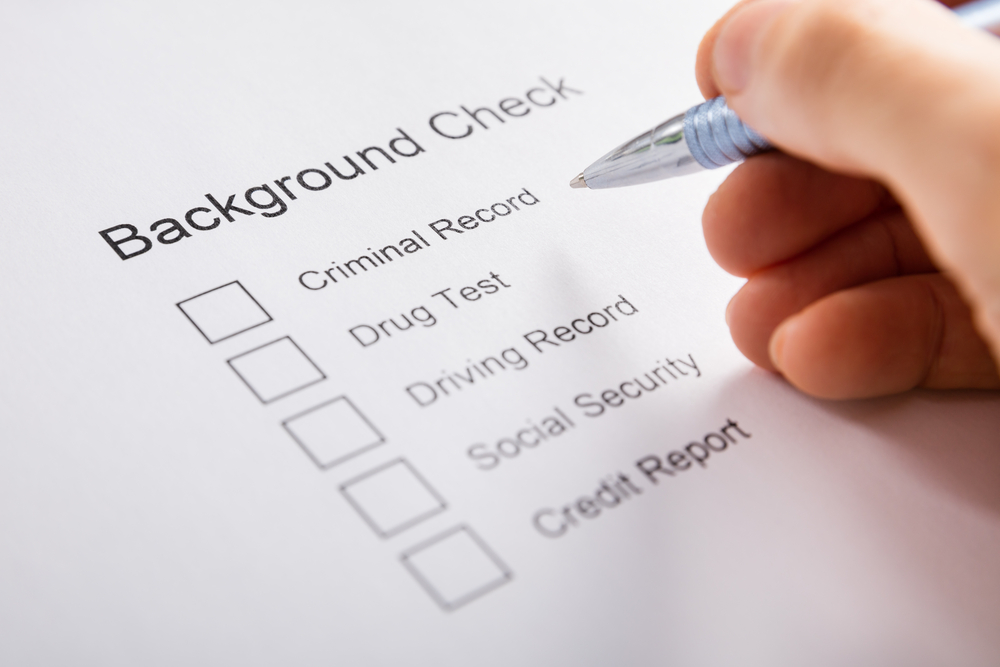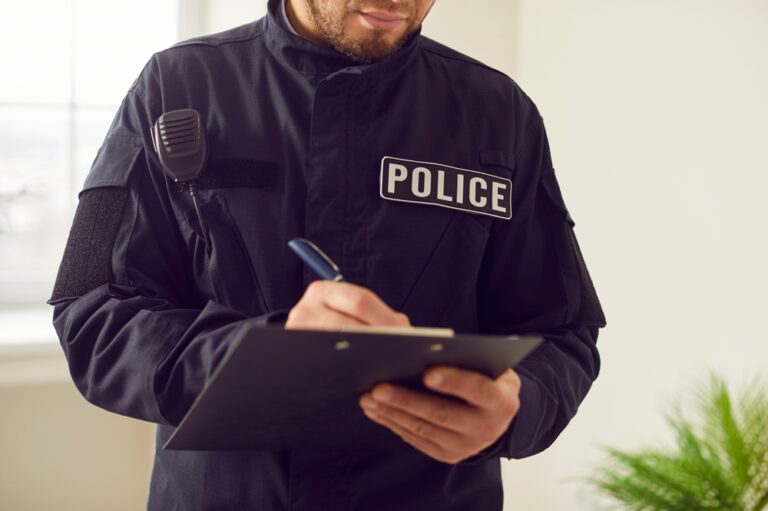
Police Tape 101: Everything You Need to Know
Police tape, commonly known as crime scene tape, is an important tool used by law enforcement to secure…

If you are considering a career in law enforcement as a sworn Police Officer, you should expect to have to undergo a background investigation while in the hiring process. This step is traditionally a lengthy portion of any agency’s hiring process, due to the investigative nature of it. Typically, before you meet with a background investigator, you will be required to fill out a personal history questionnaire. This will involve past jobs, finances, references, and much more. By the time you meet with a background investigator, they will have read your questionnaire and will ask questions to clarify things that may be unclear. It is the job of the background investigator to verify all information provided is truthful. After all, being a Police Officer, you will have enormous responsibilities and expectations and being dishonest will almost surely disqualify you. But during a background investigation what exactly are they looking for? Police agencies are typically interested in eight factors surrounding your life:

Criminal History is obviously a huge disqualifying category for some aspiring Police Officers. This is because in the United States all sworn Police Officers are armed and therefore you cannot be a convicted felon (or anyone who is prohibited from possessing a firearm). If you have been arrested for a felony, that is very different from being convicted of a felony, so if you have don’t give up hope! Misdemeanor convictions are on a case-by-case basis. If you have two convictions within the last 10 years of Driving Under the Influence (DUI) then an agency may decide to disqualify you.
Driving history is something that will always be analyzed by background investigators. Police Officers are entrusted with a police vehicle that can cost an agency a lot of money to equip. This means that any agency has a vested interest in making sure all their Officers are competent drivers. When looking into your driving history they will check for traffic tickets, accidents and verify you have current insurance and registration on your personal vehicles. Traffic tickets are all very different from one another, some can cause points on your driving record, while others may be considered minor. Accidents will be examined to determine what party in the accident was determined to be “at fault”.
Financial history is important due to agencies worrying about individuals who may be in dire financial situations and could possibly become corrupted due to their finances. This also is a reflection on how responsible of a person you are. In essence, police agencies want their Officers to be stable in all aspects of their lives, including their finances.
Employment History will be checked to see what kind of employee you are and what past employers say about your work ethic and how well you work with others. This can help a police agency determine your ability to work as a team with other Officers on your shift and to verify you’re a dependable employee. Past employment is sometimes an overlooked aspect of a background investigation. Always be sure to list all your past employment! Background investigators are typically good at what they do and will uncover any jobs you don’t disclose. Background investigators will sometimes talk to more employees from your past jobs to verify everyone has the same feelings about you as a co-worker or employee.
Education is something that can be overlooked by some applicants. This is due to most police agencies not requiring anything other than a GED or high school diploma to be eligible for a position as a Police Officer. However, some agencies require more education after high school. Prior to applying for an agency, make sure you meet the education requirements. If you enter the hiring process without the minimum education required by an agency, they will disqualify you and it could affect your chances elsewhere. Remember, attention to detail is a desired trait when considering aspiring Police Officers.
References will certainly be contacted when conducting a background investigation. This will give your investigator the ability to see what people think of you. They will ask them questions about your criminal history, drug use, alcoholism, domestic violence related issues, temperament and more. When putting down references make sure to tell them that you are going to use them as references, so they don’t get blindsided by an investigator. It is a common tactic of background investigators to ask your references for other people that may know you well. This is their way of attempting to get into contact with people who you know who you perhaps don’t want them to talk to.
Social Media History is a new element of a background investigation. However, it is analyzed like everything else during your background investigation to determine what kind of person you are. This is to check for extremist tendencies or values. It is also to ensure you don’t have pictures with you associating with criminal organizations or using drugs. Just remember to clean up your social media if you have questionable content to make yourself appear as professional as possible.
Personality is really the root of any background investigation. At the end of your background investigation, your investigator will get to know you and have a better idea if you are fitting for a position as a Police Officer. Everything an investigator checks will give them more of a peek into your character, values, and morals. It is important to always treat your background investigator with respect because they are essentially the gatekeepers determining if you are fit for the job or not.
At the end of a background investigation the background investigator will, much like an attorney, present their opinion and findings to the police agency. This is why it is important for you to always treat your background investigator with respect and to always leave a good impression. How you treat your background investigator reflects how you would treat members of the public while working in the capacity of a Police Officer.
Remember to always be honest with your background investigator and to be upfront with anything when questioned about aspects of your life. A background investigation is typically completed in 3-6 months, which is not a lot of time to figure someone out. If you are evading questions or putting off responding to a background investigator’s inquiries, it could negatively impact your background investigator’s opinion of you. Always remember to be respectful and that when in a hiring process with a police agency, every day is an interview.

Police tape, commonly known as crime scene tape, is an important tool used by law enforcement to secure…

The police are called daily regarding various incidents of public interest. It is our responsibility to provide the…

Many police officers experience terrible, traumatic events in the line of duty. A significant number of police officers…